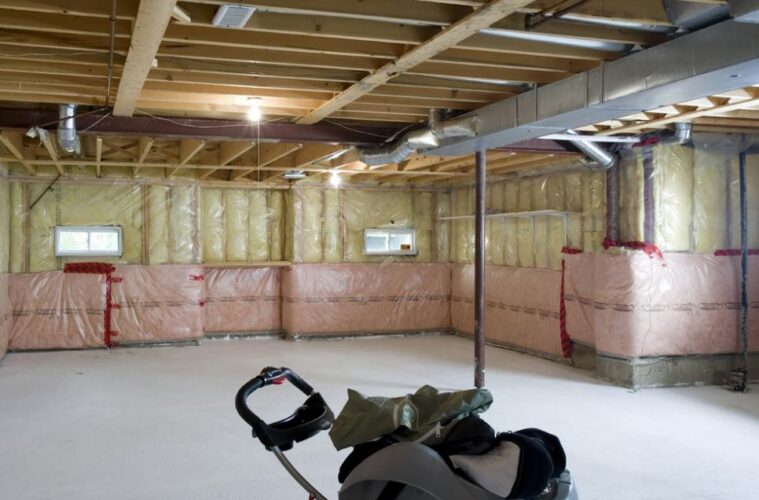Have you been thinking of having an extra game room? A party room with a wood-panel bar and a dance floor? Or maybe you want to have a miniature theater in your own home? All of these things are possible with a finished basement. But if you have a basement that you’d like to spruce up and make into something truly special, you may want to stop for a moment before jumping right in. A finished basement is a huge investment, but without proper protection, it can be vulnerable to something that many basements face: moisture problems.
Let’s take a closer look at how moisture can be so troublesome for basements, and how you can prepare your finished basement so that it doesn’t suffer in the future…
Problems Caused by Moisture
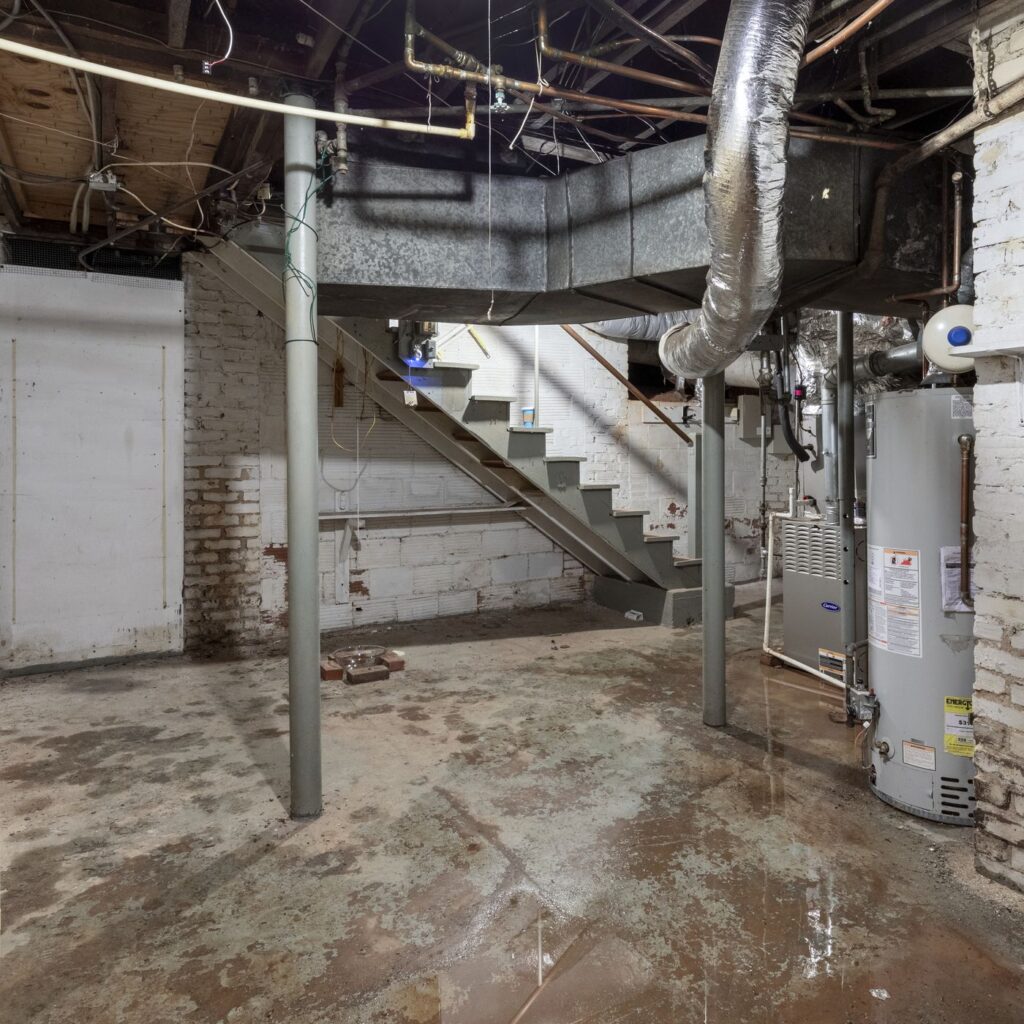
source: pinterest.com
Unless it’s an internal problem such as leaky plumbing or a spill, moisture problems in the basement are caused by the moisture that’s outside of your foundation. This tends to happen when it rains, and the water comes to sit against your foundation. The sheer amount of water against your foundation can create a tremendous amount of force called hydrostatic pressure, which forces moisture to infiltrate your foundation and can even cause cracks in the concrete. This invasive moisture can lead to a variety of problems in your basement such as…
- Foundation cracks
- Finished basement flooring can suffer from water damage and mold
- Increased humidity can affect both the basement and the air above in your living spaces
- Peeling paint
- Wood rot in your support structures
- Moisture can attract ants, termites, dust mites, and other pests
These are just some of the costly problems that can arise from intrusive moisture. So long as that moisture is allowed to linger, those problems will only get worse, and the repair costs will grow. But while there is no way to completely remove the moisture surrounding your foundation and basement, what you can do is take control of it so that moisture doesn’t cause damage to your foundation or your basement. Here are some steps that you can take before you get to making your finished basement dreams come true…
Steps to Protect Your Finished Basement Against Moisture
Maintain Your Rain Gutters
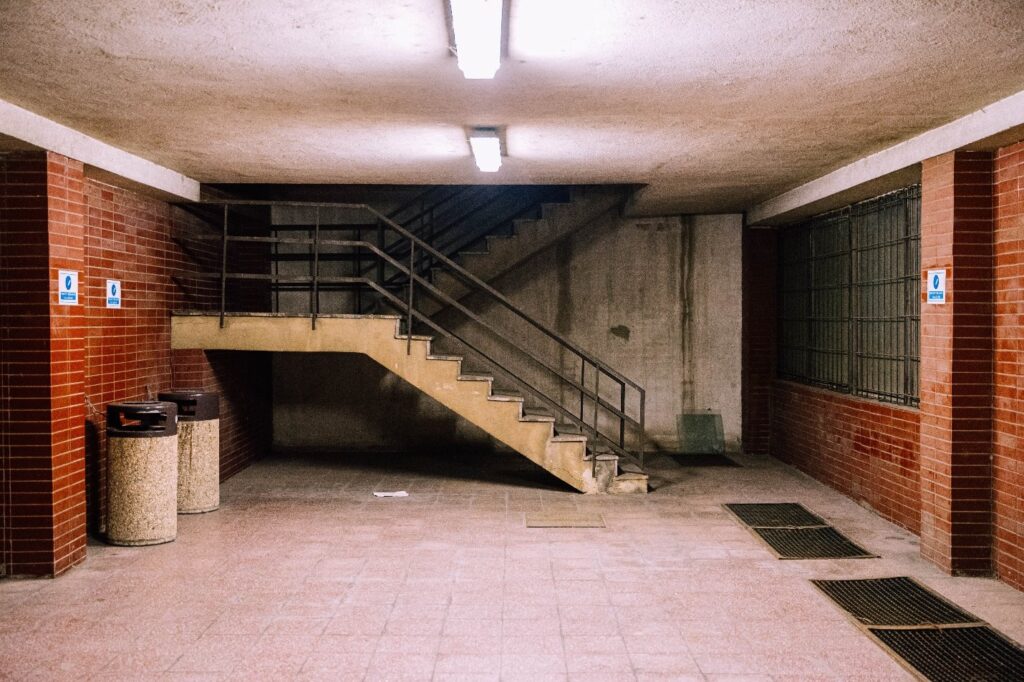
source: utbasementfinishing.com
Since rainwater can contribute greatly to the amount of water that sits against your foundation, you will want to make sure that rainwater is properly being guided away as much as possible. Your rain gutters should be maintained and cleaned to ensure that there’s nothing to obstruct that water. You should also inspect your downspout and see if it can be extended to dispense the rainwater even further away from your home. The less rainwater that reaches your foundation, the less pressure there is to push moisture into your basement, thus preventing mold in basement and home.
Check Your Grading
The land surrounding your home can also have an effect on how much rainwater seeps into the soil and sits against your foundation. The grading of your home’s surrounding land should be sloping away from your home, so that rainwater runs away from your home. Improper grading can encourage more rainwater to pool against your foundation.
Repair Foundation Damage
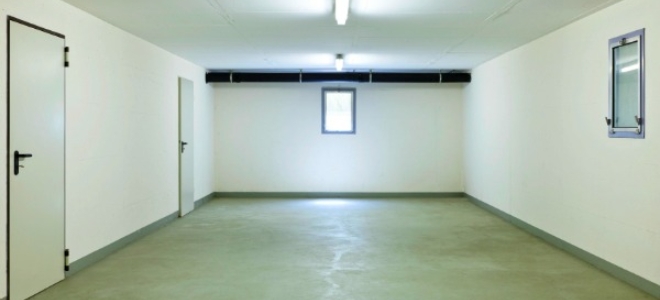
source: pinterest.com
Do you see any cracks in your foundation wall or floor? Even if they’re small, they may be signs of damage due to hydrostatic pressure. It is important to have your foundation repaired of any damage before putting together your finished basement. Otherwise, you might be leaving an easy way for outside moisture to get in and cause damage.
Get Basement Waterproofing
It is important to make sure that your house has proper basement waterproofing in place. An interior basement waterproofing system can help prevent moisture intrusion by redirecting moisture out of your basement and relieving the hydrostatic pressure against your foundation. Your basement waterproofing will likely require at least these components…
- Drainage channels
- Sump pump
- Sump pit
- Discharge pipe
Depending on your home’s unique situation, your waterproofing system may need more than just these components to properly control the moisture around your foundation. Waterproofing basement walls from inside and outside may be necessary. Along with basement waterproofing, you should consider a dehumidifier to further maintain proper moisture levels in your finished basement.
Finding a Professional Basement Waterproofing Contractor
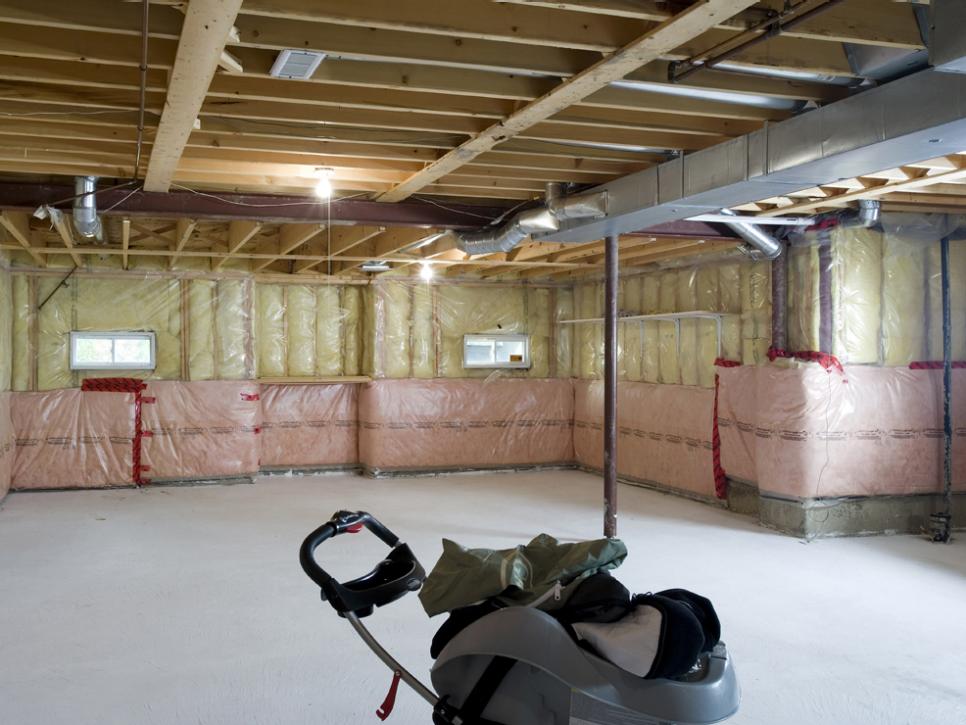
source: hgtv.com
You might be tempted to try waterproofing your basement on your own, but there’s a lot of work that goes into it from digging into your concrete to reach the footer to ensuring that all the components are properly installed so that they work as effectively as possible. It is highly recommended to choose a basement waterproofing contractor that has a lot of experience, excellent reviews, and offers a long-lasting warranty. One such company that’s got all that covered is ’58 Foundations!

